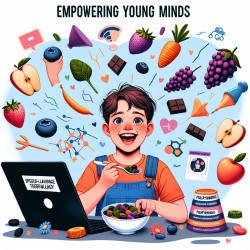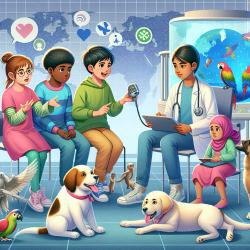In today's fast-paced world, sleep often takes a backseat to our busy lives. However, the importance of a good night's sleep cannot be overstated, especially when it comes to mental health. The GoodNight Study explores an innovative approach to preventing depression by targeting insomnia through online Cognitive Behavioral Therapy (CBT-I). This blog will delve into the study's findings and discuss how practitioners can leverage these insights to enhance their therapeutic practices.
The Connection Between Insomnia and Depression
Insomnia and depression share a complex relationship. Traditionally viewed as a symptom of depression, insomnia is now recognized as an independent risk factor for developing major depressive disorder (MDD). Research indicates that insomnia often precedes depressive episodes, making it a critical target for preventative interventions.
The GoodNight Study aimed to determine whether treating insomnia through online CBT-I could prevent the onset of depression in individuals with subclinical depressive symptoms. The study involved 1,600 adults who were randomly assigned to either an online insomnia treatment program called Sleep Healthy Using The Internet (SHUTi) or an attention-matched control group.
The SHUTi Program: A Closer Look
SHUTi is an internet-based intervention designed to provide fully automated self-help CBT-I. It comprises six modules that guide users through various aspects of insomnia treatment, including sleep restriction, stimulus control, cognitive restructuring, sleep hygiene, and relapse prevention. The program's structure allows participants to engage with the material at their own pace while receiving personalized feedback based on their sleep diary entries.
The online format of SHUTi offers several advantages over traditional face-to-face therapy. It provides anonymity, convenience, and accessibility, making it an attractive option for individuals who may be hesitant to seek in-person treatment. Additionally, the scalability of online interventions means they can reach a larger population at a lower cost.
Key Findings from the GoodNight Study
The GoodNight Study's results are promising. Participants who completed the SHUTi program showed significant reductions in both insomnia severity and depressive symptoms compared to those in the control group. Importantly, these improvements persisted beyond the intervention period.
- Primary Outcome: SHUTi participants had lower levels of depression symptomatology on the Patient Health Questionnaire-9 (PHQ-9) at six months post-intervention.
- Secondary Outcomes: There was a lower incidence of major depressive episodes among SHUTi participants at both six and eighteen months follow-up.
- Anxiety Reduction: Participants also reported decreased anxiety levels as measured by the Generalized Anxiety Disorder-7 (GAD-7) scale.
Implications for Practitioners
The findings from the GoodNight Study highlight the potential of online CBT-I as a preventative tool for depression. Practitioners can incorporate these insights into their practice by:
- Encouraging Further Research: While the study provides strong evidence for the efficacy of online CBT-I, continued research is essential to refine these interventions and explore their broader applications.
- Integrating Technology: Consider incorporating digital tools like SHUTi into your therapeutic offerings. These programs can complement traditional therapies and provide additional support for clients struggling with insomnia and depressive symptoms.
- Promoting Sleep Hygiene: Educate clients about the importance of good sleep hygiene as part of their overall mental health strategy. Simple changes in bedtime routines can have a significant impact on mood and well-being.
The Road Ahead
The GoodNight Study represents a significant step forward in understanding how we can prevent depression by addressing sleep disorders. As mental health professionals continue to explore innovative solutions, integrating technology with traditional therapeutic approaches will be key to reaching more individuals and improving outcomes.
If you're interested in learning more about this groundbreaking research, you can read the original research paper by following this link: The GoodNight study—online CBT for insomnia for the indicated prevention of depression: study protocol for a randomised controlled trial.










